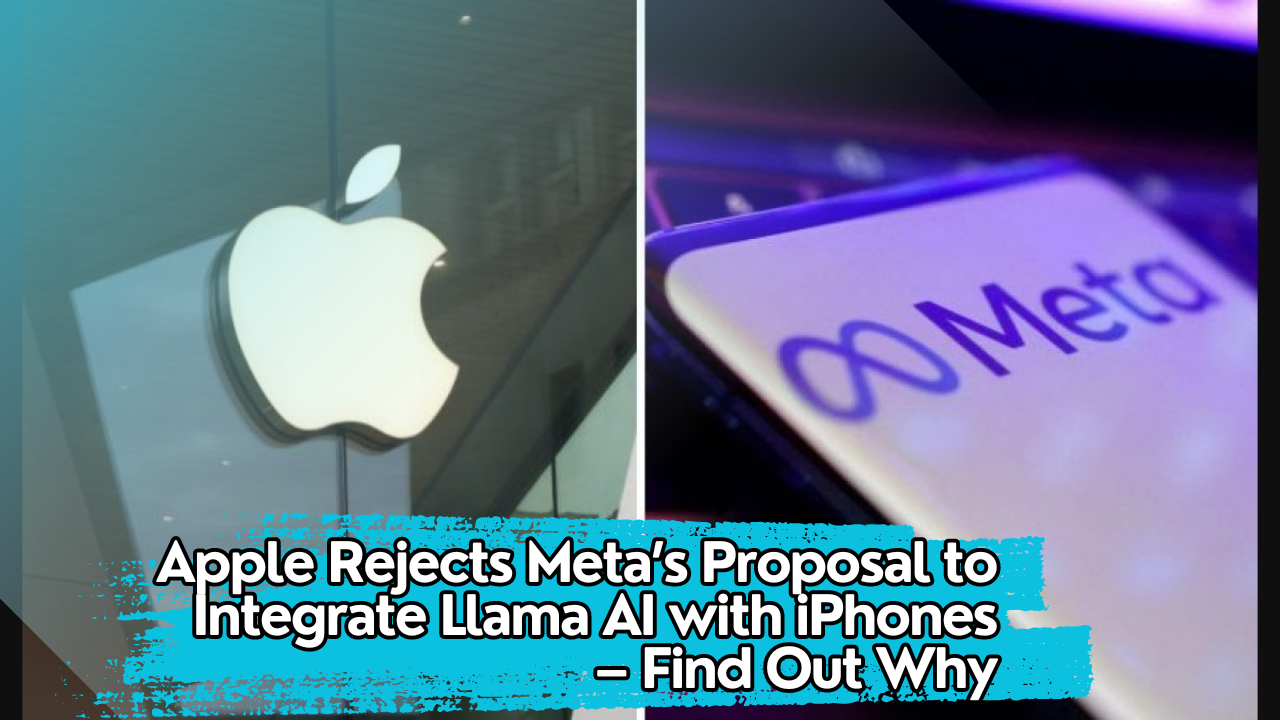Apple Rejects Meta’s Proposal: Discover Why Llama AI Integration with iPhones Faced Resistance
Introduction:
In a surprising turn of events, Apple has decided to reject Meta’s proposal to integrate Llama AI into iPhones. This decision has sparked widespread discussion and speculation within the tech community. In this blog post, we will explore the reasons behind Apple’s rejection and examine the potential implications of this move. Let’s dig deeper into the details.
Reasons for Rejection:
There are a few key factors that likely influenced Apple’s decision to reject Meta’s Llama AI integration proposal. First, Apple has always prioritized the privacy and security of its users. In today’s environment of growing concerns about data privacy, it is not unexpected for Apple to prioritize these aspects over integrating third-party AI technology.
Second, Apple takes great pride in developing and implementing its own AI technologies, such as Siri. By rejecting Meta’s proposal, Apple is reiterating its commitment to enhancing its in-house AI capabilities and maintaining control over the user experience. This is in line with Apple’s long-term strategy of tightly integrating hardware and software.
Another important consideration is the potential impact on device performance and battery life. Integrating a third-party AI system like Llama AI can present challenges in terms of optimization and resource management. Apple’s stringent quality standards and dedication to providing a seamless user experience played a key role in the rejection.
Implications and future outlook:
Apple’s rejection of Meta’s Llama AI integration proposal has several implications for both companies and users. For Meta, this decision is a setback as it limits their access to one of the world’s largest smartphone markets. It also highlights the growing competition among tech giants in the AI field.
On the other hand, Apple’s decision reinforces their commitment to user privacy, security, and control. By maintaining strict control over AI integration, Apple aims to provide a more reliable and secure environment for its users. This move could further enhance Apple’s reputation as a trusted brand among privacy-conscious consumers.
From a user perspective, Apple’s rejection could initially be disappointing for those hoping for the integration of Llama AI. However, it ensures that Apple retains full control over the user experience, guaranteeing consistent and optimized performance across all their devices. Users can continue to rely on Apple’s native AI offerings such as Siri, which have been improved over the years.
Looking ahead, this decision could potentially open up new opportunities for Meta and other AI developers to explore alternative avenues. They could focus on optimizing their AI solutions for other platforms or seek partnerships with other smartphone manufacturers. Ultimately, this rejection underscores the complexity and challenges involved in integrating third-party AI technologies into established ecosystems.
Apple Rejects Meta’s Proposal: Discover Why Llama AI Integration with iPhones Faced Resistance

